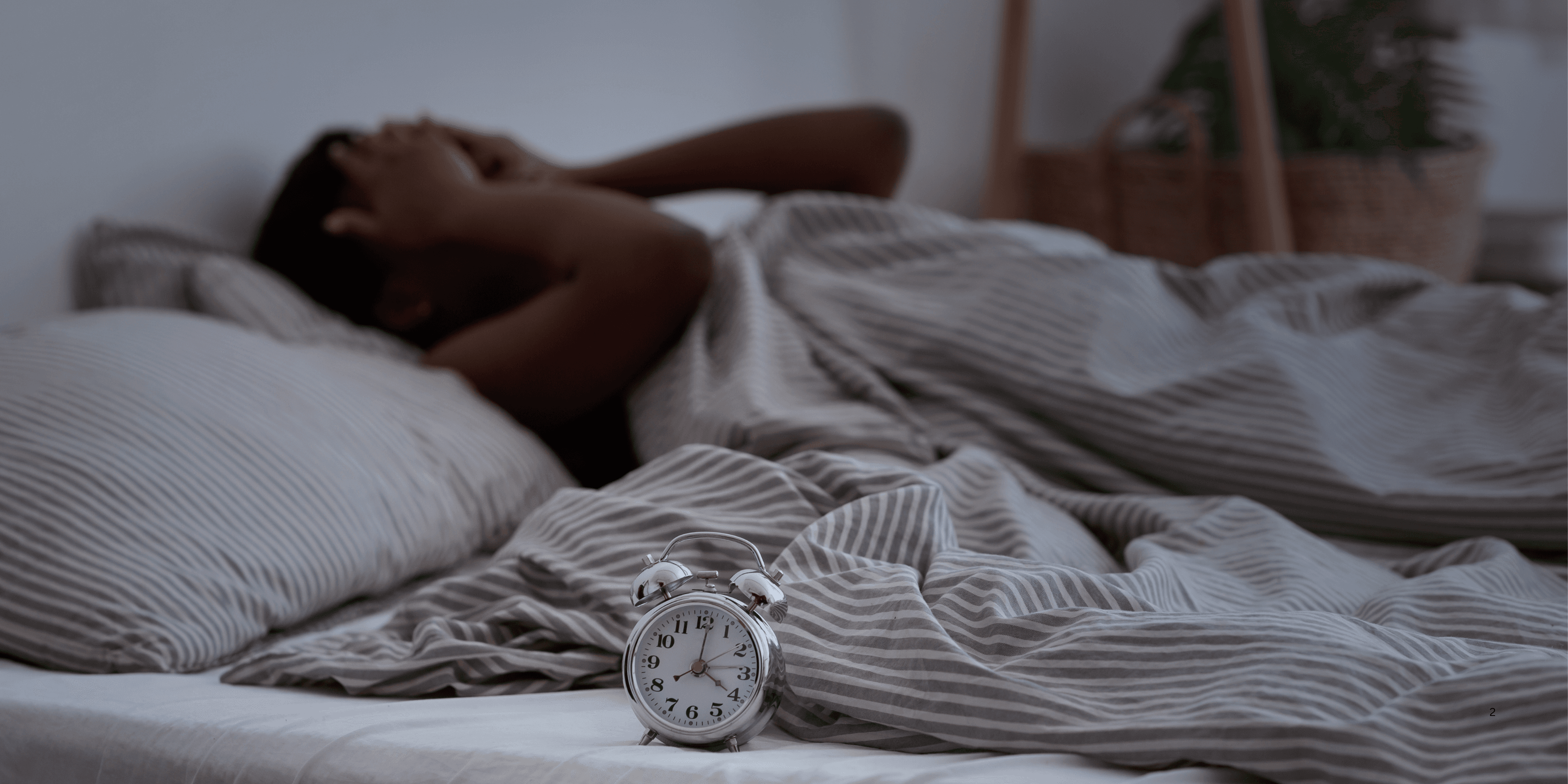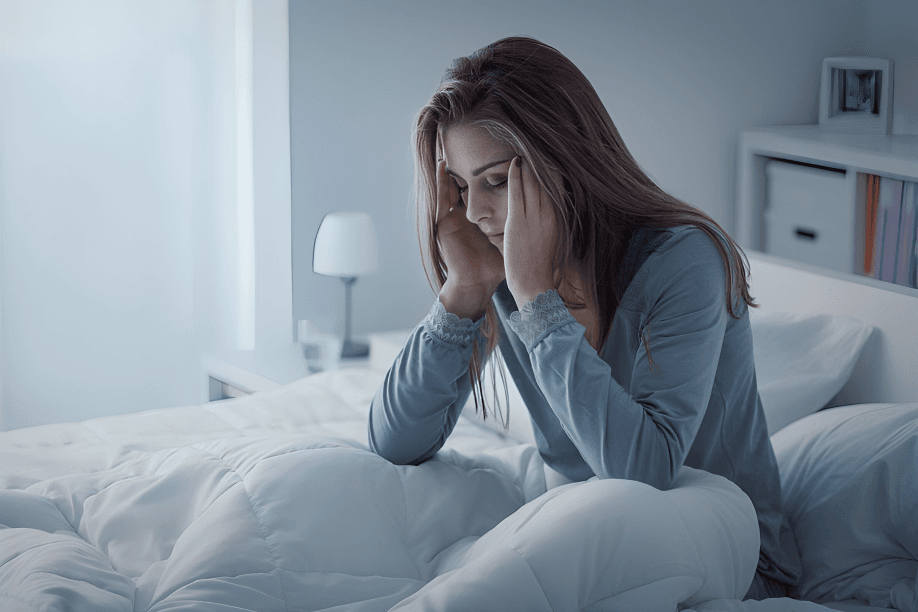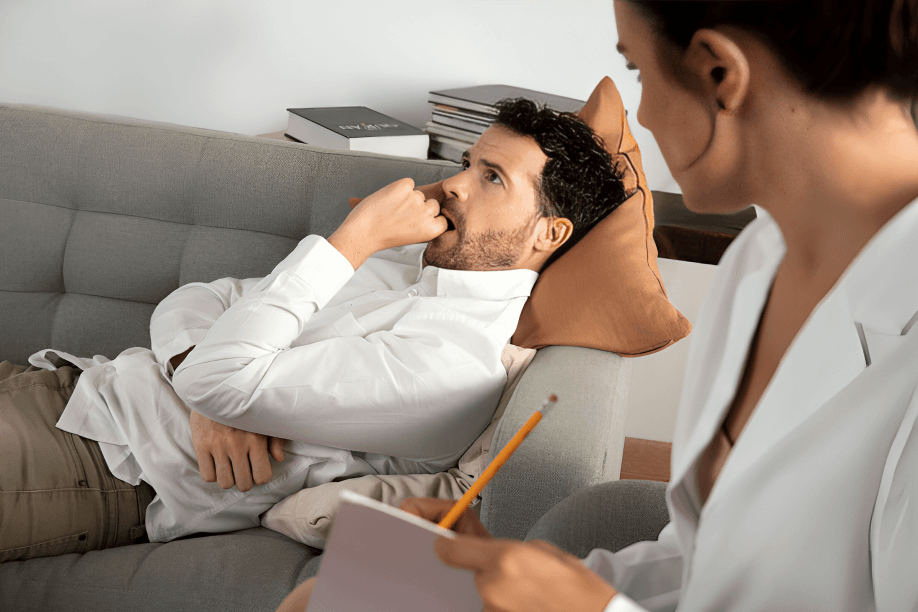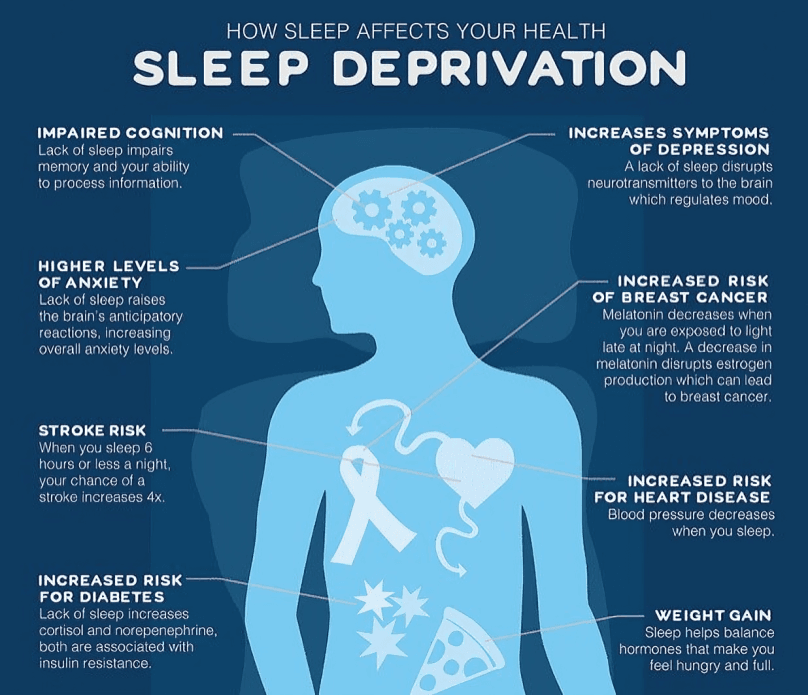
“
1
The connection between sleep and anxiety is powerful and complex. Poor sleep can exacerbate anxiety, and anxiety can disrupt sleep patterns. Understanding this connection is key to improving mental health and achieving a restful night's sleep.1
1
”
Anxiety often disrupts sleep by increasing stress hormones like cortisol, which can delay falling asleep and lead to more frequent awakenings throughout the night, creating a cycle of poor rest. 1
Sleep deprivation can worsen anxiety symptoms, as lack of rest affects brain function, making it harder to manage emotions, leading to increased feelings of worry, fear, and unease. 2

Chronic anxiety can result in insomnia, a condition where individuals struggle to fall asleep or stay asleep, which, over time, can have detrimental effects on mental health and overall well-being.
People with anxiety often suffer from irregular sleep patterns, including restless sleep and frequent awakenings, which reduce the amount of deep, restorative sleep necessary for emotional and physical recovery. 3
Sleep deprivation is linked to an overactive amygdala, the part of the brain responsible for processing fear, making anxious individuals more sensitive to stressors and increasing their overall anxiety levels. 4
Anxiety can lead to nightmares or night terrors, particularly during REM sleep, where vivid dreams occur. These disruptions may intensify anxiety during waking hours, creating a cycle of disturbed rest. 5
Those with generalized anxiety disorder (GAD) often experience sleep disturbances as part of the condition, where constant worry keeps them awake at night, leaving them fatigued and more prone to anxiety. 6
Sleep disorders like sleep apnea are more common in individuals with anxiety. These disorders disrupt the quality of sleep, exacerbating feelings of tiredness, irritability, and increased anxiety throughout the day. 7
Poor sleep increases the production of stress hormones, such as cortisol, which can intensify anxiety. This cycle of poor sleep and heightened anxiety can lead to long-term health consequences if not addressed. 8

Cognitive behavioral therapy for insomnia (CBT-I) is an effective treatment for those experiencing anxiety-related sleep problems. It helps individuals change negative thoughts and behaviors.
Research shows that people with anxiety often experience lighter sleep, which means they spend less time in the restorative stages of deep sleep, leading to feelings of grogginess and exacerbating anxiety. 9
The more sleep anxiety sufferers get, the better their ability to cope with stress. Better sleep helps regulate the body’s stress response, reducing the severity of anxiety symptoms over time. 10
Anxiety increases the likelihood of waking up during the night, especially if individuals are fixated on stressful thoughts. These nighttime awakenings lead to fragmented sleep, which leaves people feeling anxious.11
Individuals with anxiety often report feeling restless in bed, unable to fully relax before falling asleep. This mental unrest makes it harder to achieve a deep, uninterrupted sleep, contributing to anxiety the next day. 12

Over time, poor sleep caused by anxiety can impact physical health, increasing the risk of conditions like heart disease, high blood pressure, and weakened immune function, which further elevate anxiety levels.
The relationship between sleep and anxiety is bidirectional; not only does anxiety affect sleep, but insufficient sleep can also trigger or worsen anxiety symptoms, creating a persistent cycle of emotional distress. 13
Deep sleep helps regulate mood and manage anxiety, so when sleep is disturbed, the body struggles to process emotions and stress, leading to heightened feelings of anxiety and emotional instability. 14
People who experience sleep anxiety often worry about their inability to sleep, creating additional stress and making it even harder to relax. This worry can significantly prolong sleep onset and worsen anxiety levels. 15
Insomnia and anxiety often go hand in hand, as one condition can lead to the other. Insomnia worsens anxiety by making it harder to manage stress, while anxiety makes sleep more difficult to achieve. 16
The link between sleep and anxiety highlights the importance of creating a consistent bedtime routine. Proper sleep hygiene, such as reducing caffeine intake and creating a calming environment.17


